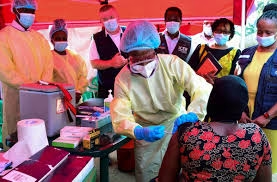Uganda has officially declared an end to its latest outbreak of Ebola, three months after cases of the deadly virus were confirmed in the capital, Kampala.
The outbreak was first announced on January 30 following the death of a male nurse who tested positive for the Sudan strain of the Ebola virus. On Saturday, the Ministry of Health confirmed via a post on X that the outbreak had ended after 42 consecutive days without a new case.
“Good news! The current Ebola Sudan Virus Disease outbreak has officially come to an end,” the ministry announced, though it did not provide the final caseload figures. Earlier reports in March indicated at least ten cases had been recorded, with two deaths.
Uganda, home to tropical forests that serve as natural reservoirs for the virus, has now battled nine Ebola outbreaks since its first recorded case in 2000. The latest outbreak, caused by the Sudan strain, was particularly concerning because there is no approved vaccine for this variant.
The outbreak began in Kampala, a densely populated city of around four million people and a key hub connecting eastern Congo, Kenya, Rwanda, and South Sudan. Despite the challenges, health officials credit Uganda’s long-standing experience with Ebola response efforts for quickly containing the spread.
Neighboring the Democratic Republic of Congo — which has faced over a dozen Ebola outbreaks, including a major one from 2018 to 2020 that claimed nearly 2,300 lives — Uganda remains on high alert due to frequent cross-border movements.
Ebola is transmitted through contact with infected bodily fluids and tissues. Symptoms include headache, muscle pain, vomiting of blood, and bleeding.



